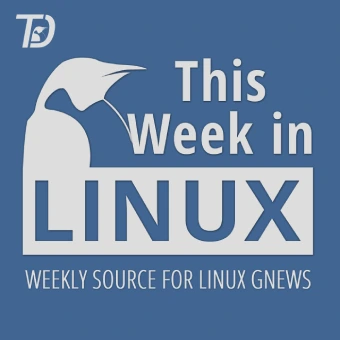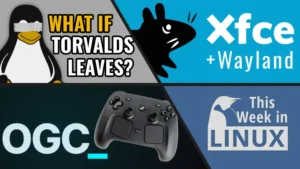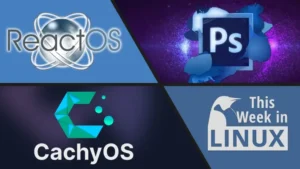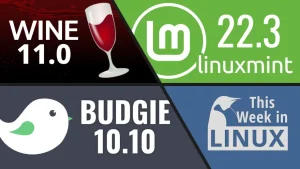On this episode of This Week in Linux, we’ve got an update for you about a CentOS alternative from CloudLinux called AlmaLinux. The company Slimbook announced a new Laptop called the Slimbook Titan and it is a very interesting piece of hardware with AMD Ryzen 7 & RTX 3070. We’ve also got releases from some big open source projects like WINE 6.0 and Flatpak 1.10. We’ve also got some interesting distro news from Fedora and a new OS called JingOS which has a very iPad-like design. In App News, we’ll talk about Mozilla’s VPN Now Available for Linux and we’ll end the show with a big Humble Bundle Bonanza. All that and much more on Your Weekly Source for Linux GNews!


Downloads & Media
[tdpodcast mode=”subscribe” podcast=”thisweekinlinux”]
Segment Index
- 00:00 = Welcome to This Week in Linux 134
- 01:10 = Check out DLNLive.com & DLNStore.com
- 01:56 = AlmaLinux: 1-to-1 RHEL Fork (CentOS Alternative)
- 06:14 = WINE 6.0 Released
- 09:17 = Flatpak 1.10 Released
- 11:42 = Digital Ocean – VPS & App Platform ( https://do.co/dln )
- 13:03 = Slimbook Titan Laptop: AMD & NVIDIA
- 17:33 = Fedora Kinoite: Silverblue with KDE Plasma
- 21:00 = Mozilla VPN Now Available for Linux
- 23:57 = Bitwarden Password Manager ( https://bitwarden.com/dln )
- 26:10 = JingOS: iPad Inspired Linux Distro
- 28:48 = Teamspeak 5 Based On Matrix Protocol
- 31:40 = Humble Bundle Bonanza (links below)
- 33:16 = Outro
Humble Bundle Bonanza
- Linux by Apress
- Front End Web Development by Packt
- Game Dev Map & Level Creator
- Start Something New by Chronicle
- Music Producer 2
- Attack on Titan Final Season by Kodansha
- Project Management MBA by Wiley
- 3D Printable Miniatures for Board Games & Wargaming
- Home Sweet Home by Quarto
- Be the Change Supporting the American Library Association
- Organize Your PC






